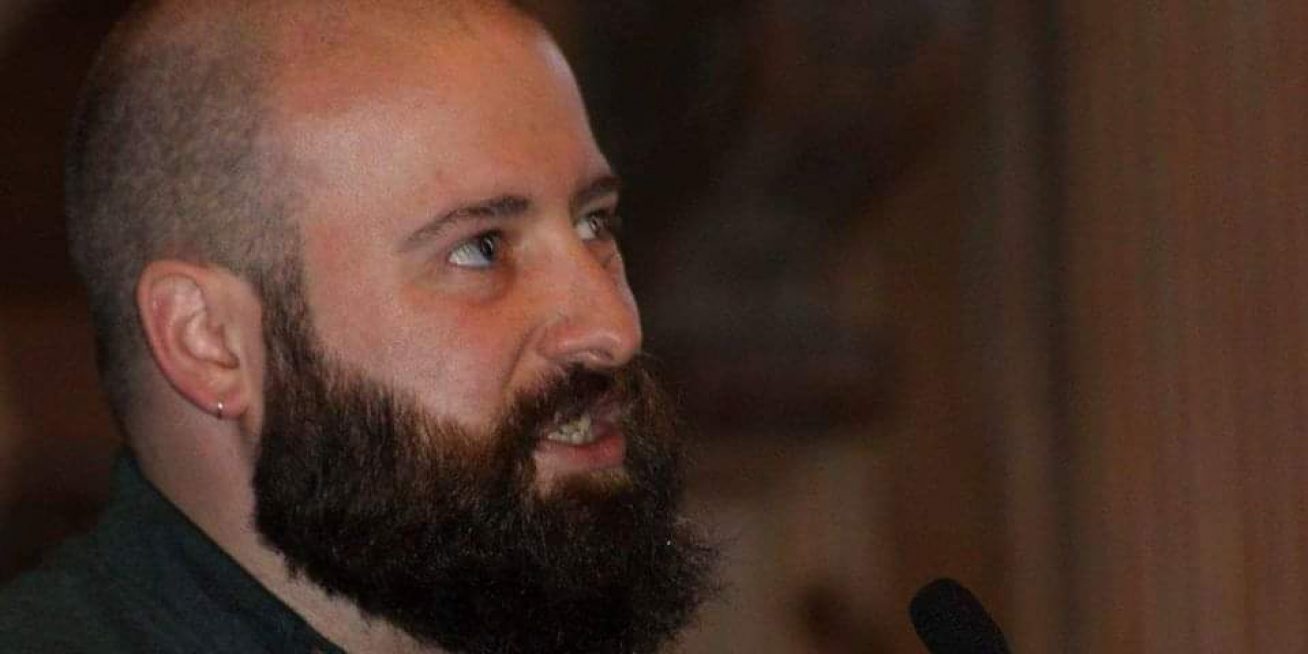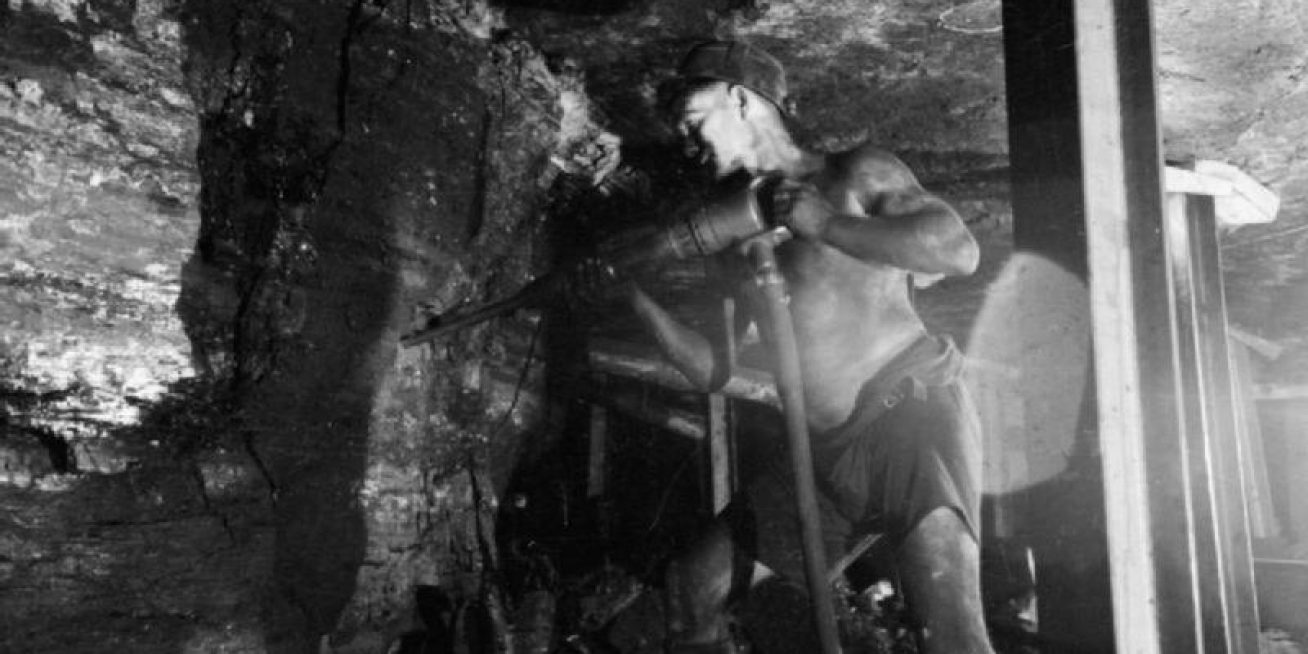Bradford's lesbian scene
Lorraine remembers the butch/femme lesbian scene in 1980s Bradford, the impact of feminism and her involvement with Bradford's Lesbian Line.
Interview recorded by Ray Larman on 19.9.2019
Duration 09:22
TRANSCRIPT
L: I came to live here [pause] early ‘80s. Although I was working here in the late ‘70s, and moved here... when I... got my first long-term relationship. [Pause] With a woman, of course. [Laughs]Interviewer: So, what were the… what was it like, going out, in, on the scene in Bradford? [overlaps]
L: Oh, it was very exciting, it was very butch and femme. [Pause] Soon learnt it was safer to be a butch, then you didn’t get cruised by them. Quite... quite a fast scene really. Lot of people going out with women who were married to men. One woman called Norma, everyone called her Normal Norma. The men’s scene, very camp. Quite a lot of… I was friendly with quite a few of the gay men. Quite nice friendships.
Interviewer: So were you going to the same places or different places, as the men?
L: Erm... same, really. It was only in the ‘80s the lesbian-only discos started, so… yeah.
Interviewer: So what did it – what it – did it involve when you kind of decided you were going to be a butch? What did that mean?
L: Oh, well, the long hair went, the skirts and dresses went, the trousers came, the t-shirts. The make-up all went, you know, the Rimmel and the Max Factor all went in the dustbin. Which wasn’t a great thing, you know. And [pause] yeah, just... started to, take on the look of a, of a non-heterosexual woman, because I was quite a slim, long-hair, large-bust, so I used to get men whistling at me, and dates, and you know. And I just hated it. So it was to repel that really.
Interviewer: So what reactions did you get after that then?
L: From my family?
Interviewer: Well yeah, and, and men.
L: Well men left me alone. Derogatory comments, like, ‘are you a lezza?’ and all this nonsense. And family saying, ‘do you want to be a man?’. I said, ‘no, I’m a woman, but I don’t want men’s company particularly. Unless it’s gay men, I don’t want to attract heterosexual men, so’. And I put weight on as well, which I’d never really done before.
Interviewer: Right. [Pause] So, were there... particular ways of interacting, if you were in a place that was like, particularly butch and femme? Like a club or a bar?
L: Well I didn’t smoke like a butch cos I didn’t smoke [laughs] Oh yeah. Well [pause] It was and it wasn’t really. [Pause] There wasn’t much said, about being butch and femme other than how you looked. You know, you always wondered... like... I mean I must have been asked hundreds of times, like, ‘are you the man?’. I used to say, ‘what do you mean?’ knowing exactly what they meant! [Laughs] But there’s not much talked about or recorded, so. There’s a classical saying, ‘butch on the streets, femme between the sheets’... but I don’t know.
Interviewer: Was there certain... of rules, etiquette about, I don’t know, asking people to dance, who would buy a drink, that kind of thing?
L: Yeah, yeah, the butches would go to the bar, but mu – more or less. But then you got some women who’d be femmes supposedly and the butches wouldn’t work and they’d sit around all day and, I just thought that was crazy... And obviously at that time politically, the... Reclaim the Night marches, Women’s Aid, Rape Crisis was coming on the scene. A lesbian -
Interviewer: This is early ‘80s?
L: Yeah. Bradford Rape Crisis was about 1981. So the feminism was coming in, and... Bradford University started running the women’s courses. So you’ve got the political element, and then on. If you think of the Gateways in London, the Gates was very butch and femme, not that I ever went, and they didn’t allow political discussions in there. So there’s a big divide between butch and femme and the rad fems, as it were.
Interviewer: So how did that impact on the butch/femme scene?
L: Well I think it was seen that butch and femme really was working class. And the radical fems were the educated middle class, roughly. There was – there seemed to be some crossover. And [pause] It was – I remember going to... women’s disco, probably at the Woodpecker in Leeds? If you remember the Woodpecker where the flyover is now, there’s a big old Tetley’s pub, and they used to have lesbian discos and at one point I think – not sure if it was there, but denim was banned. Or, people were looked at, because denim was... het male, there was some reason why people didn’t like denim.
Interviewer: Does that mean you, you wouldn’t get in if you were wearing denim?
L: Well, it was frowned on. There, there’s always been various dress codes, but a lot the rad fems didn’t wear denim. And I stopped wearing it at one point, cos they were – it was something around, I don’t know, domestic violence or wife-beating or whatever, so. There’s all these quirks. Not eating meat, meat would make you more aggressive, vegetarian, plus the cruelty plus the world food production. Fair comment. All these things. And being more egalitarian, you know.
And then... then about 1980... that was the formation of Bradford Lesbian Line. Which was two women from Bradford University, myself, my partner, and four other women. We didn’t actually go live ‘til ‘81. But it was set up through the university, had a room at Laisteridge Lane, and some seed money to pay for the phone. Basic counselling training. I mean at that point, I’d left college and I was, I was working, I was selling. So I wasn’t in a, a... an environment that was conducive to it, I mean I enjoyed doing it, but we tended to get women ringing up, coming out, women who were in violent relationships both with men and women, women who’d been raped, which we’d refer on to Rape Crisis. Men ringing up tossing themselves off, we had a police whistle that we used to – you could just [sighs] you could just tell. I mean [sighs]...You know, they’d ring up and they’d say, ‘do you do shows?’ and you could hear them jerking off and you’d just [sigh] and then [makes a whistle noise] bang the phone down.
Interviewer: Did that do the trick? [Laughs]
I: Well you never knew cos they always used to pretend to be somebody else [laughs]. I did it from... I did it for about ten years, left, and then went back for another five years, so I did it a long time.
Interviewer: So how, how many days would you be doing it a week?
L: It ran Thursday nights seven while nine, ‘30-55-25, we await your call’. And then we tried it Monday afternoon because we was getting criticism that, you know, some women couldn’t use the phone, on an evening, it was difficult. Then we put the answerphone on. Answerphones started coming in in the ‘80s. So that was good, so we’d then do ring-backs, and we used to meet people. Take them to the Bavaria, take them down Oak Lane to the Park Hotel. Crazy stuff. On Tuesday nights. And, I mean, you’d get people coming out relationships, you’d get people with mental health problems.
Interviewer: So what, so what was that like, was it stressful, was it rewarding?
L: It, it was, it was both. And we used to do film days down at the Playhouse and Film Theatre as fundraisers. And we’d 300 women turn up to see Desert Hearts one Saturday afternoon. And we, we had to do two sittings, you know, they were going mad about the insurance. We’d cooked a load of soup in the kitchen and were selling the soup so [pause] – they were good times, they were good – they, they probably wouldn’t happen now. And... lesbian balls, Victoria Hall. I remember down my socks I had a thousand quid in cash, stuffed down my socks, cos we took so much money on the door. Because we didn’t pre-sell the tickets in those days, it was cash, I was just literally rolling the cash up and sticking it down my socks.





